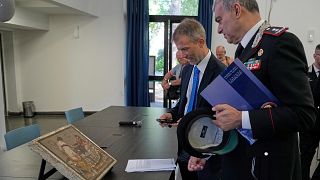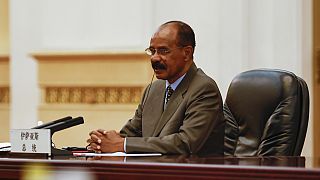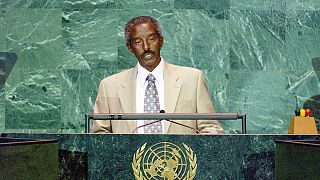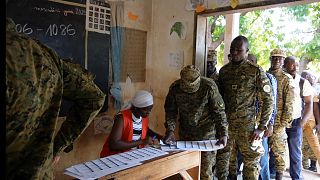Eritrea
The Eritrean regime, one of the most repressive in the world, was on Wednesday found to have committed gross human rights violations by a UN Commission of Inquiry (COI) which recommended that the case be referred to the International Criminal Court ( ICC).
“Crimes against humanity have been committed in a general and systematic way in Eritrea,” said the Commission of Inquiry on violations of human rights in Eritrea, in its 2nd report since its establishment in 2014 by the Council of the United Nations Human Rights.
The commission, which was barred from traveling to Eritrea by the regime for almost 25 years, interviewed 833 Eritreans in exile and gathered evidence against records of officials suspected of committing these crimes against humanity such as slavery, torture, deprivation of liberty, forced disappearances, persecution, rape and murder.
Its 26-page report was presented to the media in Geneva and will be discussed on June 21 before the next session of the Council for Human Rights.
Eritrea, which has 6.5 million inhabitants, “is an authoritarian state, there is no independent judiciary, no National Assembly and no democratic institutions (…) there is a climate impunity for crimes against humanity committed since a quarter century,” said the president of the commission Mike Smith.
The report stresses that “Eritreans are faced with arbitrary detentions, discrimination based on religion or ethnicity, sexual violence and murder.”
The Commission also said that there are “300,000 to 400,000 slaves” because the conscripts are somehow “owned” by Eritrean officials.
“Very few Eritreans are released from their obligations of military service,” he said.
Thousands of Eritrean refugees in Europe
The Commission “believes that there is a shoot-to-kill policy against those seeking to cross the border,” added Smith.
This is one of the reasons why the Eritreans are fleeing by thousands from this small country in the Horn of Africa, which gained independence in 1991 after a thirty-year war against Ethiopia.
In 2015 alone, more than 47,000 Eritreans sought asylum in Europe. Eritreans found refuge mainly in Sweden, Germany, Switzerland and the Netherlands.
The President of the Commission of Inquiry asked the UN Security Council to take “targeted measures” against individuals responsible for various crimes identified, without naming them.
“The international community must now take action including referring the situation to the International Criminal Court” to study the matter, Smith said.
Responding to the report, an adviser to President Isaias Afewerki, Yemane Gebreah, said in Geneva that the “investigation Commission has no tangible evidence or legal basis to support these extreme loads and unfounded”.
According to the Eritrean official, “the methodology of the Commission of Inquiry is so flawed that it seriously compromises his statements and reports its findings null and void.”
Among the recommendations it will present to the Council of Human Rights, the Committee requests the Eritrean government to implement the 1997 Constitution and ratify several conventions guaranteeing human rights.
It wants the implementation of the Penal Code, Criminal Procedure, Civil and Civil Procedure in May 2015.
In February, several Swiss parliamentarians had traveled to Eritrea in the context of a private trip that sparked controversy.
In its report, the UN Committee states that “the appearance of peace and normalcy in the eyes of a casual visitor and those confined to certain areas of the capital contradicts persistent patterns of violations of human rights “.
It notes that violations of human rights are not committed in the streets of the capital, Asmara, but “rather behind the walls of the detention centers and military training camps.”
AFP













01:07
Only 35% of sustainable development goals on track to meet target, UN says
01:07
UN-Russia agricultural export memorandum will not be extended
01:13
Forty years and counting: CAR once again postpones local elections
Go to video
ICC warns of a dire humanitarian crisis in Sudan as the war rages on
02:06
UN report reveals 4.6 million people struggling with food insecurity
01:22
World will have to learn to live with heatwaves, UN says